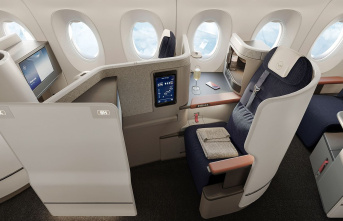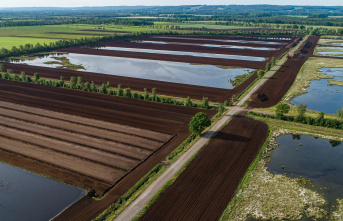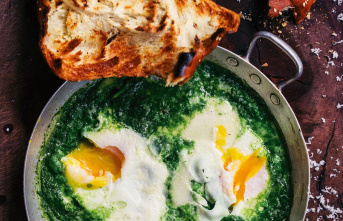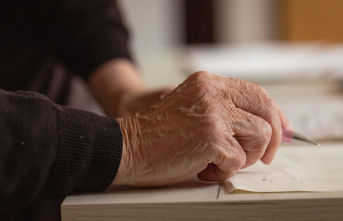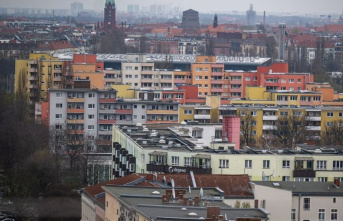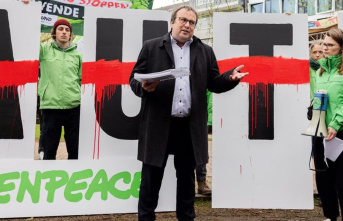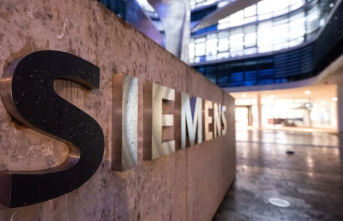The doctor carefully wraps the bandage around the patient's head. A colleague holds the tube that leads into the man's nose, another takes care of the burned feet and hands. The operating room in the Unfallkrankenhaus Berlin (UKB) is full this morning. Between all the German doctors stands Olexander Jazkowyna - a Ukrainian surgeon.
Together with his colleague Julia Huk, the 29-year-old came to Berlin by bus from central Ukraine in November. They are in Germany for two weeks to learn more about the treatment of severe burn injuries. Knowledge they could use in the middle of a war.
Lauterbach comes to visit
Huk and Jazkowyna are two of 40 doctors who sit in at eight clinics in Germany. The project was initiated by Federal Health Minister Karl Lauterbach (SPD) during a visit to Ukraine in the summer. The so-called trade association clinics such as the UKB have a high level of expertise in burns.
They treat more than half of the severely burned patients in Germany, as Bernd Hartmann, chief physician at the UKB's center for severe burns, says. They want to share this knowledge. "Especially in burn medicine you have to learn a lot of basic techniques and train together. And that's happening here now."
A difficult situation awaits the Ukrainian doctors at home: Although Huk and Jazkowyna do not live directly in the war zone, there are many war wounded in their hospital. The power supply is partially interrupted. Emergency care has clearly come to the fore, says Jazkowyna.
They also treat war wounded in Berlin. After the operation, there is a visit. In the first room lies a Ukrainian soldier with severe burn injuries who has been treated in Berlin since September. He can hardly move his fingers, everything is scarred: arms, legs, face. Huk knows such sights. The treatment is new for her: His scars are treated with compression garments that increase blood circulation.
Materials are expensive
"We are all very happy that she is here and that we can share our knowledge," says senior physician Jenny Dornberger. But the material is very expensive. "Unfortunately, one cannot assume that such a treatment or the supply of compression underwear can now take place everywhere." But it is an important part, said Dornberger. In cases where the material is available in Ukraine, it helps patients a lot. But Huk learns even more during the rounds, including how physiotherapy, doctors and occupational therapy work together.
The doctors should get to know the basics here so that they can manage without the materials in an emergency. "A war situation is always a terrible situation," says Hartmann. You then notice that the normal supply structures often no longer work. "So you have to train yourself to do the best possible therapy for the patients, even under these restricted conditions."
Thoughts of the war at work
The clinic therefore also supports the doctors after their return. According to Hartmann, you can send photos and questions and get advice from afar. "The aim is also that we not only train in these 14 days, but that we are also available to colleagues, in the sense of telemedicine." The program is also to be extended so that more than 40 doctors can benefit from the experience in Germany.
As a rehabilitation doctor, Julia Huk took a lot with her after just a few days. "It's very positive that rehab starts very early here," explains the 25-year-old. "It's usually later for us and I wish we could do that." Of course, it is painful for the patient when rehabilitation starts so early. "I'll take away how it's managed, that it's bearable for him and that the best result is still achieved."
Even in Germany, Huk and Jazkowyna can't let go of the thoughts of the war. Jazkowyna says he wants to get the most out of his stay in Berlin and work every day. And then return as soon as possible to continue helping. "We hope for peace for the whole world. War is always bad for people." Huk says she was actually a sports doctor - but changed her mind. "Mainly because of the war," she says. "Now other issues are not as important as they used to be, it's about keeping so many of our people alive and healthy."


